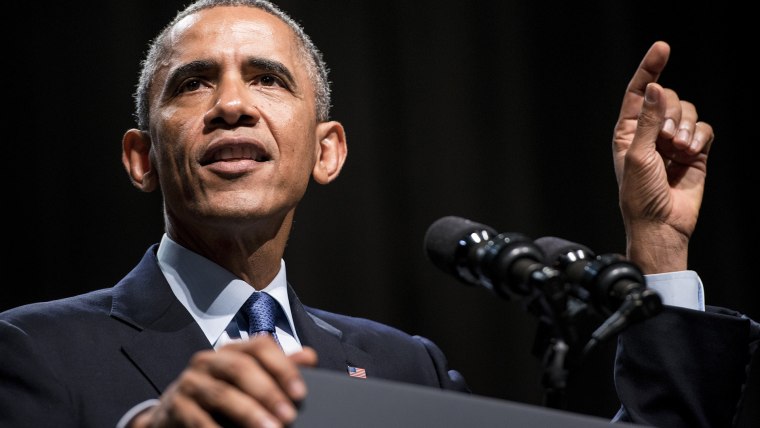For more than a half-century, the United States has had one policy towards Cuba. The policy been embraced by presidents in both parties, it's been unwavering, and it's been entirely consistent.
It's also failed miserably.
U.S. foreign policy towards Cuba has been built on a foundation of isolation: as a result of Fidel Castro's regime, Americans have imposed a tough trade embargo on the island nation 90 miles from U.S. soil, while maintaining no diplomatic ties. The idea from the outset was to use this isolation to strangle the oppressive Cuban government, but in practice, it's done nothing of the sort.
But year after year, election after election, both parties were too afraid of the political consequences to suggest a change. Everyone just went along, keeping the woefully ineffective policy in place. It hasn't produced any tangible results for the last 54 years, but maybe if we stick with it, eventually the policy will succeed.
In a surprise move, President Obama planned to announce on Wednesday that Washington is moving to restore full diplomatic relations with Havana, following the release of imprisoned American aid worker Alan Gross. President Obama and Cuban President Raul Castro spoke yesterday on the phone for 45 minutes to "review and finalize" the plan, according to senior administration officials. High-level negotiations between Washington and Havana began last spring, facilitated by the Canadian government and the Vatican. Pope Francis personally intervened, sending a letter to Presidents Obama and Raul Castro urging the release of Gross and the three Cubans imprisoned in U.S., and calling for closer relations, according to senior administration officials.
It would be up to Congress to lift the decades-old embargo -- an unlikely step given Republican control of the House and Senate -- but that doesn't make today's developments any less significant.
On the contrary, this is among the most significant breakthroughs for U.S. foreign policy in a generation.
According to White House materials, the new policy will establish diplomatic relations with Cuba, expand travel opportunities to and from the island, make it easier for those in the United States to send money to people in Cuba, and create opportunities for limited financial transactions between the countries, among other things.
And if we look at the globe as a geo-political chess board, it's probably also worth noting that Obama's new policy moves Cuba away from Russia and towards the United States, while strengthening America's hand in Latin America, where China would like to expand its influence.
What's more, let's also not forget that this change is also expected to help the U.S. economy through increased trade and investment.
Most Republicans, and even a few Cuban-American Democrats, are predictably outraged. But it's incumbent on them to answer some difficult questions: what's the value in sticking with a six-decade-old policy that wasn't working? If the isolation strategy was smart, why has Castro's regime remained in place all this time? How many more decades are we supposed to stick with an approach that brought us no closer to any discernible goal?
Let's also not forget that President Obama, as a candidate in 2008, told voters that he was prepared to make a dramatic break with the old U.S. policy towards Cuba.
Long-time readers may recall a
report from 2008 in which then-Sen. Obama spoke to the Cuban American National Foundation, where he defended his intention to change course.
"Now I know what the easy thing is to do for American politicians," Obama will say, according to prepared excerpts. "Every four years, they come down to Miami, they talk tough, they go back to Washington, and nothing changes in Cuba. That's what John McCain did the other day. He joined the parade of politicians who make the same empty promises year after year, decade after decade." "Instead of offering a strategy for change, he chose to distort my position, embrace George Bush's, and continue a policy that's done nothing to advance freedom for the Cuban people."
Soon after, as I
reported at the time, the McCain campaign started running ads trying to tie Obama to Castro.
Like the failed policy itself, McCain's attack ads didn't work. Obama won Florida (twice), became president, and followed through on his commitment to change U.S. policy towards Cuba for the better.
